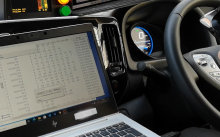
The rise in connected autonomous vehicles presents challenges such as software reliability, operational trust and determination of accountability. A major concern is cyber security. Vehicle-attack opportunities are still emerging and not yet fully understood.
1) Assessing the threat and perceptions of automotive cyber risk. Vehicles will increasingly need to communicate with one another and to cloud systems. With the rise in connectivity, come the increasing risk of cyber breaches. Attacks could potentially affect data privacy, vehicle security or even vehicle safety. But how great is the danger? What are the perceptions of the car users? And how should we measure these? These are questions that automotive manufactures will need to increasingly ask in the next few years.
2) Devising and testing automotive cyber attack scenarios. The Controller Area Network (CAN) is a crucial in-vehicle network used by safety crucial components, such as transmission, engine performance and braking. It is possible to read packets from the car’s CAN (as well as inject malicious packets), though the car manufacturers keep the meaning of the data secret.
Projects could investigate what CAN data sets might be available for testing attack detection, or investigate how attacks might be simulated, or devise algorithms to detect suspicious anomalies in data which might indicate an attack. One option would be to use a laptop based based CAN simulator (such as the free Kvaser CAN King) and CAN Python libraries with pre-gathered CAN logs (which we already collected).


